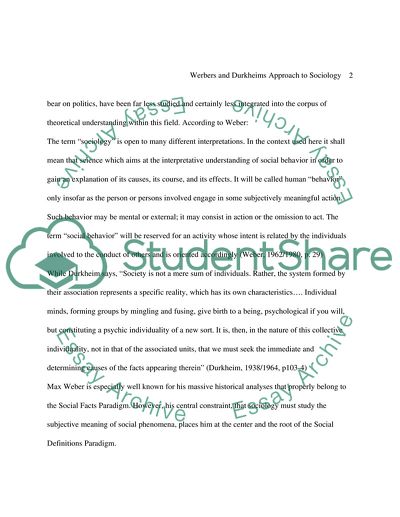Cite this document
(“Werber's and Durkheim's Approach to Sociology Essay”, n.d.)
Werber's and Durkheim's Approach to Sociology Essay. Retrieved from https://studentshare.org/sociology/1535328-werbers-and-durkheims-approach-to-sociology
Werber's and Durkheim's Approach to Sociology Essay. Retrieved from https://studentshare.org/sociology/1535328-werbers-and-durkheims-approach-to-sociology
(Werber's and Durkheim'S Approach to Sociology Essay)
Werber's and Durkheim'S Approach to Sociology Essay. https://studentshare.org/sociology/1535328-werbers-and-durkheims-approach-to-sociology.
Werber's and Durkheim'S Approach to Sociology Essay. https://studentshare.org/sociology/1535328-werbers-and-durkheims-approach-to-sociology.
“Werber's and Durkheim'S Approach to Sociology Essay”, n.d. https://studentshare.org/sociology/1535328-werbers-and-durkheims-approach-to-sociology.


